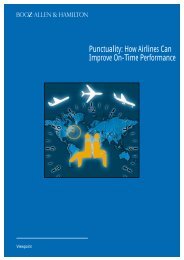The sentence
The sentence
The sentence
You also want an ePaper? Increase the reach of your titles
YUMPU automatically turns print PDFs into web optimized ePapers that Google loves.
<strong>The</strong> difference between ‘a/an’ and ‘one’<br />
1. We do not use a/an + noun and one + noun in the same way.<br />
We use a/an to mean ‘any one’: I’d like a coffee, please.<br />
We use one when we are counting: It was one coffee I ordered and not two.<br />
2. We use one with day, morning, evening when we are telling a story:<br />
One day, when I was working as a salesman, I received a strange telephone call.<br />
Compare: I had to stay in bed for a day. (= any day, it doesn’t matter which)<br />
I had to stay in bed for one day. (= one day and not two or more)<br />
3. We use a/an or one with:<br />
a. Whole numbers: a/one hundred, thousand. c. Money: a/one pound, dollar.<br />
b. Fractions: a/one quarter, half. d. Weight, measures: a/one kilo, foot.<br />
‘A/an’ for price, distance and frequency: ‘80p a kilo’<br />
price/weight: 80p a kilo distance/speed: 40 km an hour<br />
distance/fuel: 30 miles a (or to the) gallon frequency/time: twice a day<br />
“A/an’ or zero with reference to illnesses: ‘a cold’<br />
1. We always use a/an with these illnesses: a cold, a headache, a sore throat.<br />
2. We can use or omit a/an with these:<br />
catch (a) cold, have (a/an) backache/earache/stomach-ache/toothache.<br />
3. We use no article at all with these plurals: measles, mumps, shingles.<br />
4. We use no article with these: (high) blood pressure, flu, gout, hepatitis.<br />
C. <strong>The</strong> definite article: ‘the’ (2)<br />
‘<strong>The</strong>’ for specifying<br />
1. When we use the, the listener or reader knows or can understand what we are referring<br />
to.<br />
We can make a reference ‘specific’ or ‘definite’ by means of:<br />
- back reference: We stopped at a small village. <strong>The</strong> village was very pretty.<br />
- the + noun + of: <strong>The</strong> life of Napoleon was very stormy.<br />
- a clause: (= part of a <strong>sentence</strong>): <strong>The</strong> Jones I’m referring to is a colleague of mine.<br />
- a context: <strong>The</strong> listener knows exactly what we are referring to from the context.<br />
That’s why we say: It’s the postman, (Not *a postman*)<br />
She’s gone to the butcher’s. (Not *a butcher’s*)<br />
Running is good for the heart. (Not *a heart*)<br />
2. We often say the cinema, the theatre, the supermarket, the bank, etc. even if we don’t<br />
know exactly which: He’ gone to the cinema/the theatre/the supermarket/the bank.<br />
3. We refer to the country, the mountains, the seaside even if we don’t know exactly<br />
where:<br />
We’re spending the weekend in the country/in the mountains/at the seaside.<br />
4. We use the to refer to ‘one of a kind’: the earth, the sea, the sky, the sun, the moon, the<br />
solar system, the planets, the galaxy, the universe: <strong>The</strong> earth doesn’t belong to us.<br />
20




